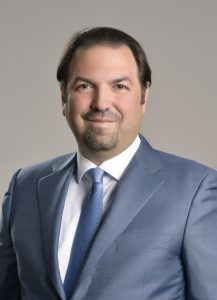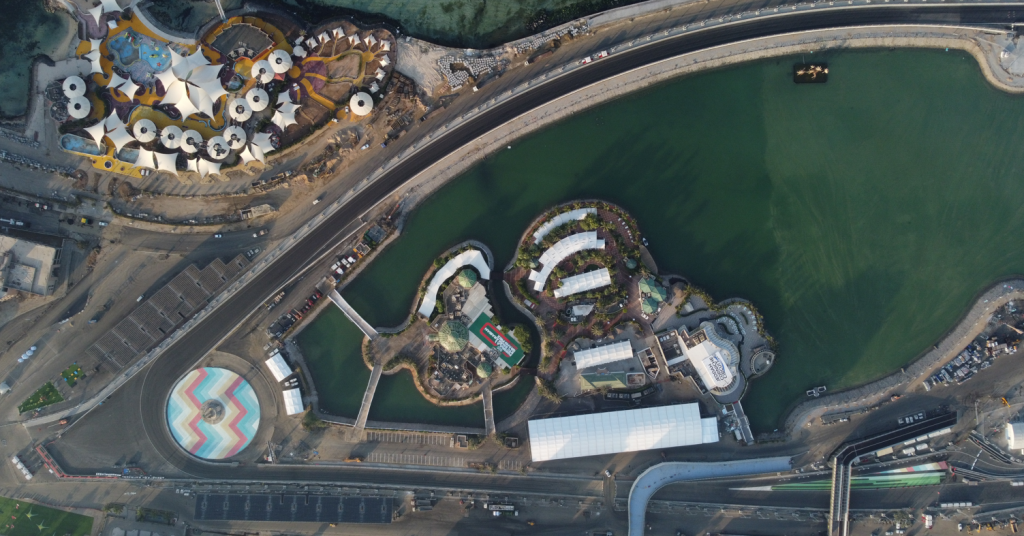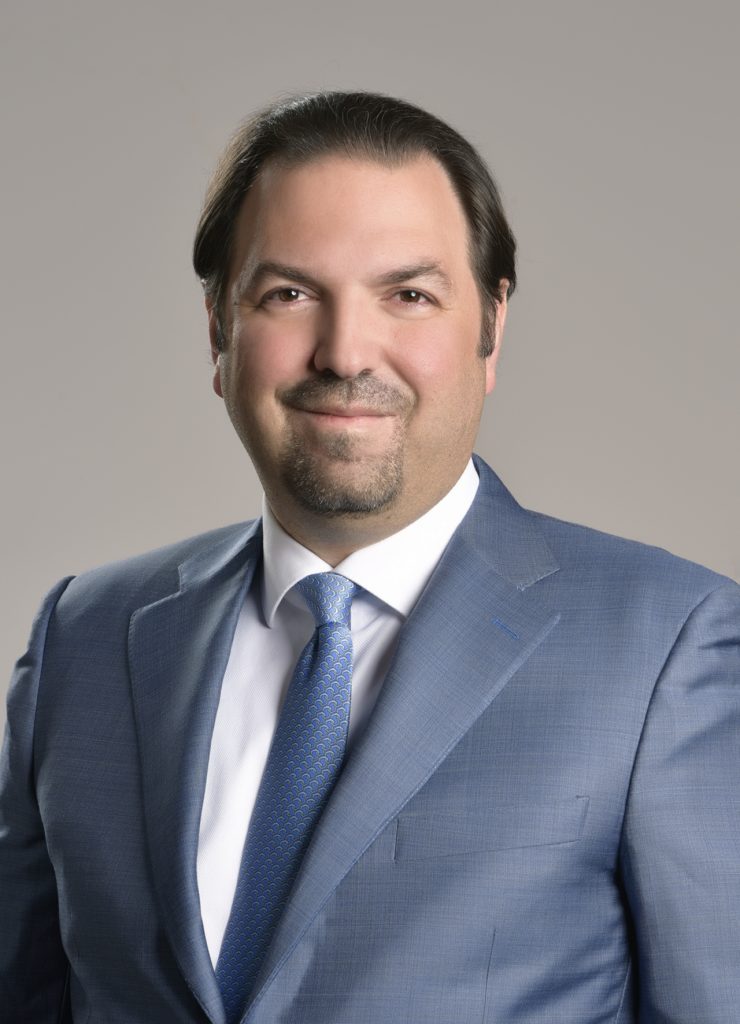Kasun Illankoon spoke to Fadi Hatoum. CEO at UNIMAC, company that specializes in heavy civil contracting company that focuses on the design, construction, and maintenance of infrastructure, about UNIMAC’s latest project, their expectations for 2022, and what sets them apart
Tell us about the company’s goals and expectations for 2022
2022 is the beginning of an incredibly exciting chapter for UNIMAC. Over the past 43 years, UNIMAC has steadily built its capabilities and capacity to get us to where we are at this moment. Last year, we reached the pinnacle of infrastructure and asphalting projects – an FIA approved “grade 1” circuit capable of hosting the most exciting Formula 1 race on the calendar. Due to the difficulty and complexity of building a grade 1 circuit, there are only a few contractors in history who have succeeded in such a task. However, to do so in EIGHT months has never been done before and was considered near impossible. UNIMAC stood up to the challenge with confidence and steadfastness, and on December 3, 2021, the Kingdom of Saudi Arabia had its very first Formula 1 race viewed by hundreds of millions of spectators worldwide. After accomplishing this, we look forward to showcasing new achievements in 2022 and beyond.
Tell us about the latest projects that UNIMAC have delivered and are there any other upcoming projects in the pipeline?
Our prize project was the Jeddah Corniche Circuit, executed under our Special Projects Division. We are proud to be the Official Circuit Construction Partner of the Jeddah Corniche Circuit, as well as an FIA-recognized Contractor. Resultantly, we now can build F1 circuits anywhere in the world. Considering motorsports is presently one of the fastest growing sports in the world, with dozens of tracks in the pipeline to be constructed over the next few years, UNIMAC is well positioned to take on a number of these projects that require our expertise and know-how. It has been the greatest of honor, as a local contractor in Saudi Arabia, to get this level of global recognition.
We completed the entire 6.175km of the track in 8 months. To put that in perspective, this entailed 478,000m2 of demolition, 200,000m3 of excavation, 177,500 linear meters of LV/MV electrical cables, 212,000m2 of the most advanced asphalting in the world, and much more.
There are several exciting projects for us in the pipeline, some of which will be tendered over the next few months. We are anxiously anticipating the tender for several new motorsports tracks to be constructed within the Kingdom, which includes the newest permanent F1 track at Qiddiya. Other projects include complete infrastructure works for some of the Kingdom’s GIGA developments, airports, and mega shopping centers.

How has UNIMAC differentiated itself from other contractors and to become one of the leading contractors in KSA?
UNIMAC is one of the few vertically integrated Class 1 contractors in the Kingdom. We produce our own construction materials, together with asphalt mix designs, and conduct all quality assurance procedures in our company laboratories. We also operate and maintain our own transportation fleet, machinery, and a staff of experienced and motivated specialists.
UNIMAC is honest and upfront about what kind of company it is. We specialize and focus on infrastructure and motorsports projects. While the term “general contractor” is commonly used in the sector, UNIMAC selects projects that fall within its execution capabilities, and in doing so ensures the highest quality work.
How do you view the role of technology and innovation in the construction industry? What technological or innovative implementations have UNIMAC done in projects?
Technology and innovation are critical factors in the successful delivery of our projects, but not necessarily in the form that people may typically think of. Our investments lie in our engineering solutions and equipment to give our clients the very best finished products in the shortest execution time frame.
One such example is our use of the latest Geogrid technologies during physical stabilization of soils. Instead of replacing enormous amounts of unstable soil, which could take months of work, UNIMAC deploys tailored Geogrid technologies to stabilize the earth in a fraction of the time. Not surprisingly, this application of new technology is also significantly more economical than conventional methods.
Another winning application is the use of the most advanced multiplex systems in our asphalt pavers. This allows for the delivery of the smoothest surface finishes by global standards.
Additionally, we have introduced new slot drains technologies in our projects to offer a near invisible drainage system capable of handling significant rainfall.
Can you give us your view in the construction industry in KSA and what are the positive signs you see in 2022 and beyond?
After having gone through a few years of reduced growth followed by a pandemic, Saudi Arabia’s economy is now going through a substantial growth phase. Much of this growth is a direct result of the significant resources the Saudi Arabian government is investing in the Kingdom’s infrastructure. With $1.1 trillion dedicated to this effort, only about $240 billion has been allocated, leaving $860 billion worth of work upcoming in the pipeline.
Saudi Arabia is presently experiencing an influx of international companies as most want to partake in the investment strategies, projects and goals set for the Kingdom. The projects are complex and massive, and contractors are gearing up for the works that have been set in motion.
The most critical element looking forward is to ensure that these works are successfully implemented through proper and efficient management of supply chains. This will particularly be a challenge soon due to cost-push inflation, scarcity of materials, and procuring long lead items.

The track is the second longest yet the fastest street circuit on the F1 calendar. The construction was so extensive that it is on par with a permanent track construction, despite it being planned as a temporary circuit of a three-to-five-year lifespan. The real victory for us is the high grip of the track surface which the drivers very much enjoyed. All components of the track’s asphalt and layers were locally sourced, including aggregates, bitumen, and additives except for the safety barriers and slot drains. Achieving these mix designs, and executing with tolerances in the millimeters, requires true expertise, superior equipment, knowledge of aggregates, and an understanding of the local climate and environment.
Ultimately, the success of any racetrack is about the experience of the drivers and spectators. As we know, the Formula 1 race in Jeddah was a phenomenal success in that retrospect. The drivers spoke very positively about the track and the tarmac – even Sir Lewis Hamilton mentioned the noticeably high grip that was resultant of our mix design. And regarding the spectators, it was confirmed by Sky TV that the Saudi Arabian Grand Prix was watched by more viewers than any other F1 race broadcasted since it took over broadcasting rights 10 years ago.
If that doesn’t translate to an absolute success of a project, I don’t know what does! We couldn’t be prouder to be Official Circuit Construction Partners, and to have been able to deliver such a track to the world.
For the time being, we are very excited and looking forward to the upcoming races in March. We are certain that millions of anxious F1 fans are feeling the same!




